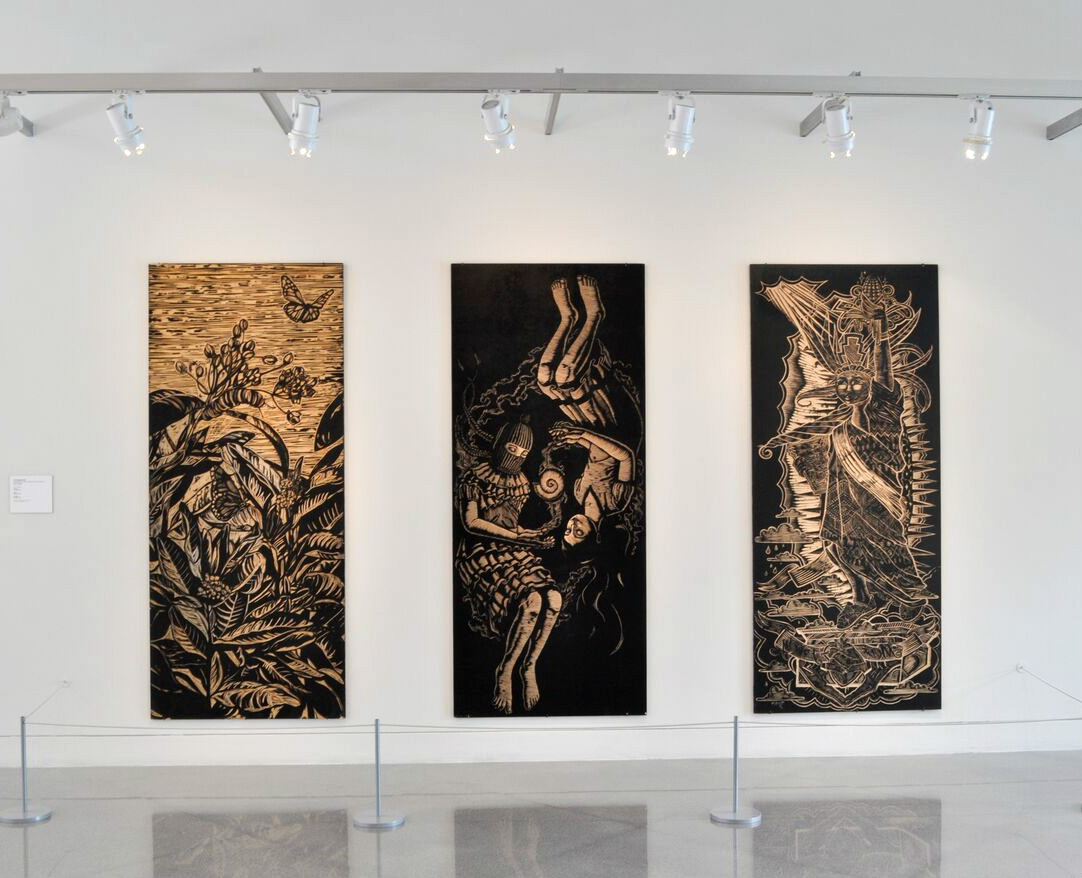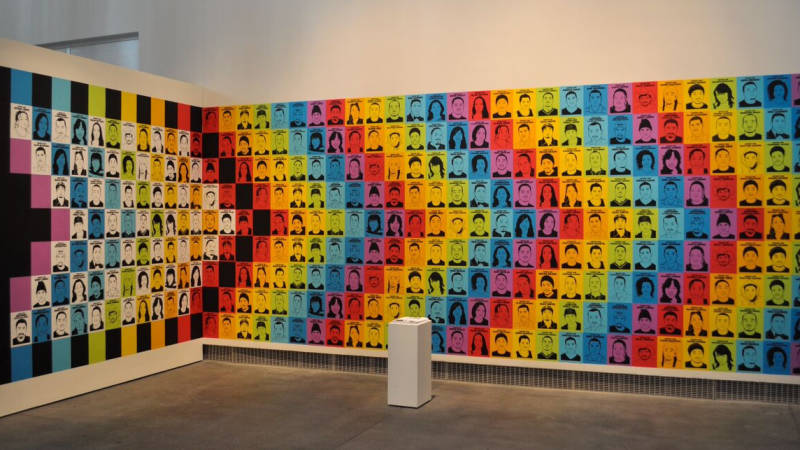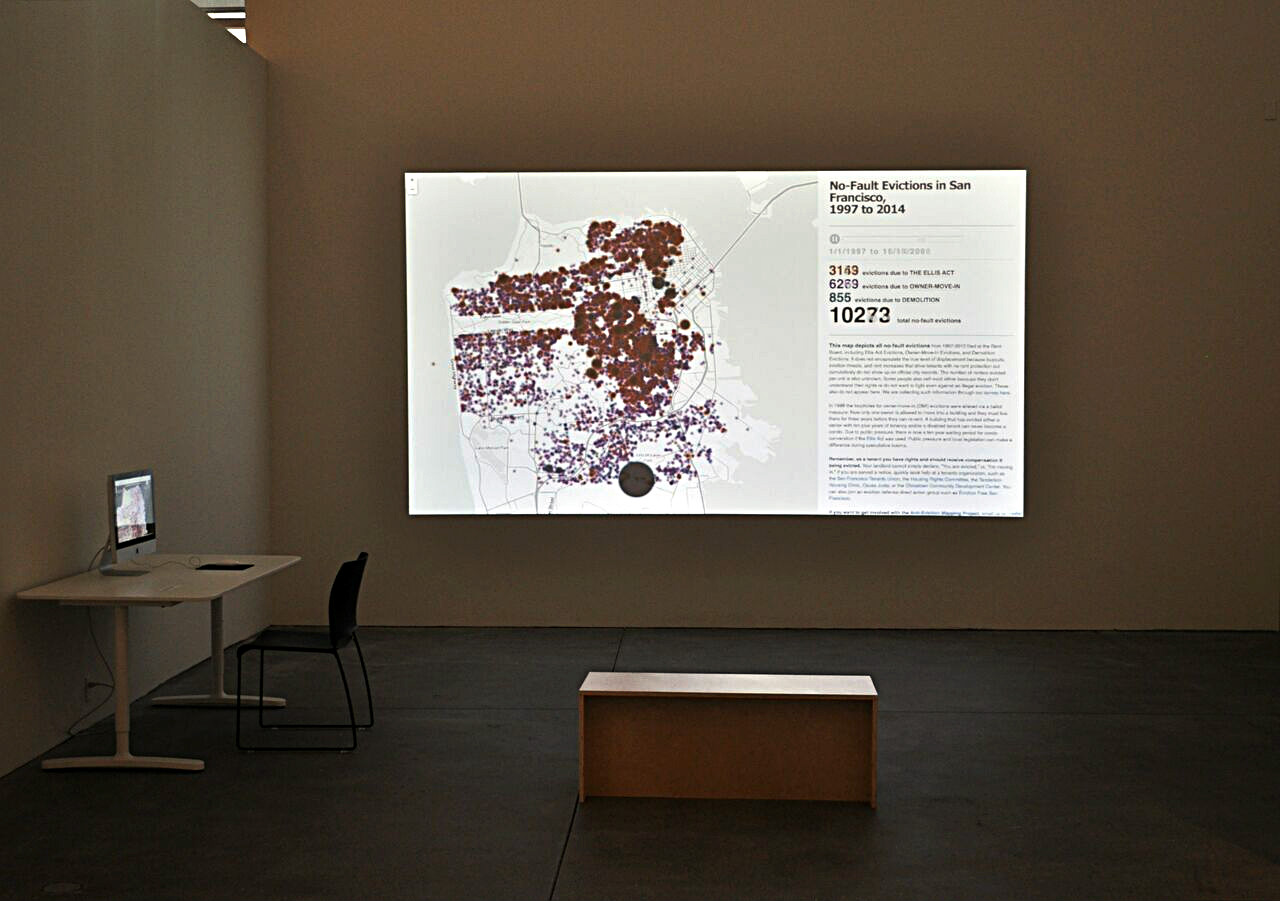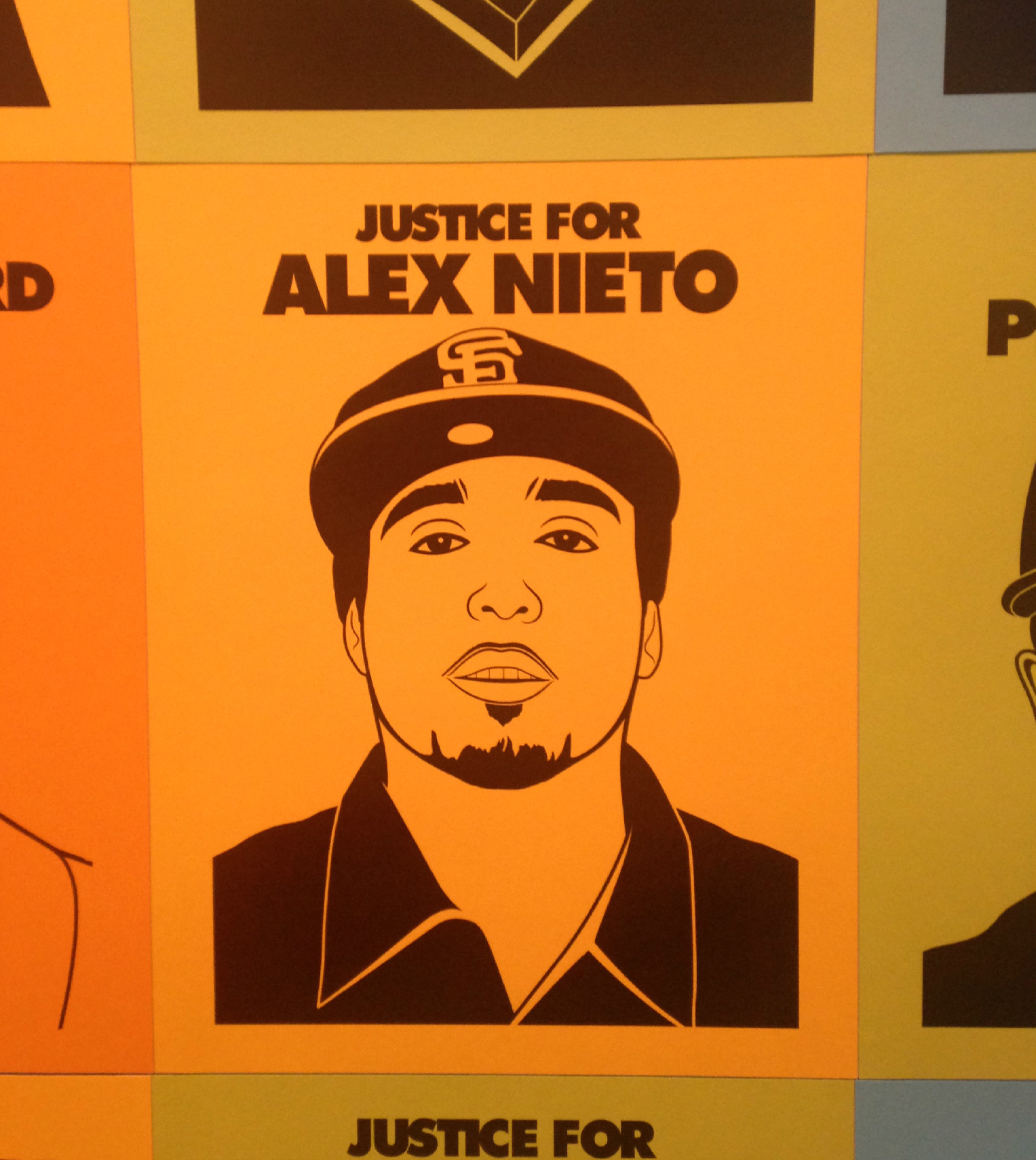At my very first direct action training some 20 years ago, I clearly remember the facilitator emphasizing the importance of using creativity to get our messages about capitalism, deforestation and racism out there. “It will make people think,” he told us. “And in the very least, the police won’t know what to do you with you if you’re dressed like a clown-tree and performing a monologue about sweat shop labor while riding a unicycle.”
He was right. The intersection of art and activism certainly makes people think. And at this moment in history, critical thinking is desperately needed.
In today’s world of online petition activism and social media political memes, it can be easy to click away and forget the many other forms of action that change makers engage with out in the real world — and the varied creative mediums they use to get their messages to the masses.

Take This Hammer: Art + Media Activism from the Bay Area brings together an extensive, radical and heart-wrenching collection of multimedia activist art that should be required viewing.
The exhibition, which runs through August at the Yerba Buena Center for the Arts in San Francisco, covers a lot of ground, a survey that can at once be overwhelming and inspirational. The overwhelm of course comes from the vast range of socio-political and environmental issues we currently face as a society: racism, police brutality, housing crises/gentrification, poverty, the prison industrial complex, the list goes on. The inspiration comes from the seemingly endless creativity utilized within visual, performing and literary arts as tools for individual and collective resistance.




